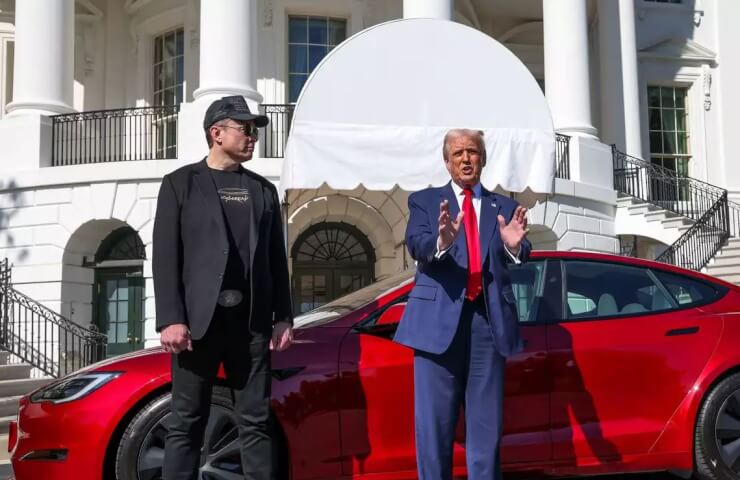President Donald Trump said today that he would impose a 25% duty on foreign-made cars and trucks imported into the United States, but said that no duties would be imposed on cars assembled in the United States.
Trump said the new duties on imported cars mark the "beginning of liberation Day," the term Trump used to refer to his plan to unveil comprehensive duties to major foreign trade partners on April 2. The White House estimates that duties on imported cars and trucks will generate $100 billion a year in new tariff revenue. Trump said the car tariff would take effect on April 2, which would be a financial incentive for automakers to shift production to the United States.
"We will actually charge a 25 percent tariff, but if you manufacture your car in the United States, there will be no tariff," Trump said in a speech at the White House. "And that means a lot of foreign car companies, a lot of companies, will be in great shape."
Car duties are likely to add thousands of dollars to the price of many imported cars and trucks. But the duties — the details of which have not yet been released — seem more targeted than Trump's initial plan to impose a 25 percent tariff on almost all imports from Canada and Mexico, since duties will not apply to parts for cars and trucks if the vehicles are assembled in the United States.
"In my opinion, this will benefit anyone who has factories in the United States," Trump said.
Ontario Premier Doug Ford had previously warned that Trump's plan to impose a near-comprehensive import tariff could bring auto production in the United States and Canada to a standstill in just 10 days. Eventually, Trump postponed these tariffs until April 2.
Earlier this week, Trump said that South Korean automaker Hyundai's decision to invest $5.8 billion to build a steel mill in Louisiana offers a blueprint for how companies can avoid tariffs. Trump has already imposed a 25 percent tariff on steel and aluminum, and earlier this week said he would announce tariffs on imported wood, semiconductor chips, and pharmaceuticals.
Even though the lack of details about the upcoming tariffs fueled uncertainty for businesses and a sharp decline in U.S. stock markets, Trump continued to announce additional tariffs. On Tuesday, Trump said that any country accepting Venezuelan oil or gas supplies would be "forced" to pay an additional 25 percent tariff on any goods imported.




